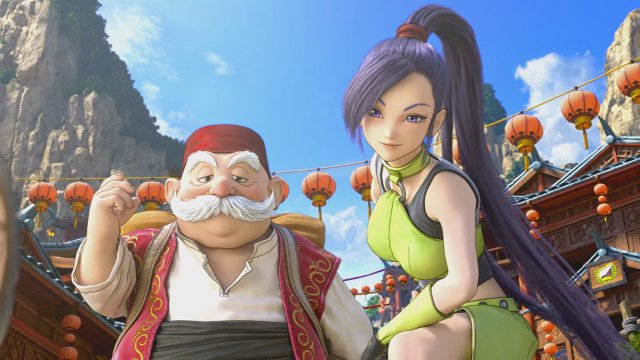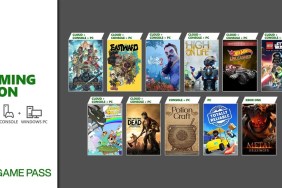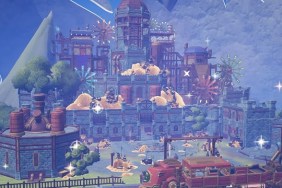Western audiences, it would seem, are slowly becoming a less picky bunch. While there’s been no shortage of Japanese-developed franchises continuing to pluck along, staying afloat by regularly keeping their carved-out niche of players satisfied over the years, the overwhelming global success of Monster Hunter World proves that there’s a newly-acquired appetite for games with an Eastern twist. The aforementioned Monster Hunter series is once one such example, though it has since laid the groundwork for other underdog favorites to inspire audiences all over by selling in excess of 7.5 million copies in as little as five weeks.
Of course, this isn’t to say that Western players have never taken to a Japanese series like ducks to water before. Pokémon, for example, shouldn’t be considered as anything less than a phenomenon. Complete with its own trading card game, animated TV show, and multiple arms of merchandise tie-ins, Game Freak’s pocket creature-battler is a JRPG series that has remained universal since its debut in 1995.
What’s interesting about the lofty heights Monster Hunter has now ascended to, however, is that by comparison, no great marketing push was needed to see it top the charts of video game sales worldwide. Instead, Monster Hunter World was able to inspire players internationally by doubling-down on understandable mechanics, increased accessibility, and finding a home on new platforms this time around. From what we’ve seen of Dragon Quest XI recently, history could very well repeat itself for a franchise that equally has remained popular in Japan but is yet to make the mainstream Western jump.
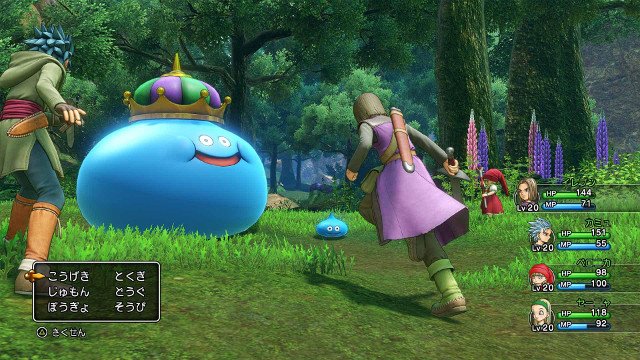
A long-present RPG series with a devout following and storied history that dates as far back as 1986, what’s new in Dragon Quest XI: Echoes of an Elusive Age? First thing’s first, the upgrade in graphical prowess. Much like Monster Hunter, one could argue that the Japanese cult series has struggled so much in finding a larger base of players due to its confinement to underpowered hardware. While the turn-based battles, job systems, and general design of previous entries have remained dependable, sometimes the visual “wow” factor has lacked.
Dragon Quest VIII was the last mainline series entry to hit home consoles in Europe and North America, for instance, somewhat marred by developer Level-5’s need to fall back on cel-shaded textures, characters, and environments for Dragon Quest’s first foray into full-3D. Aesthetically the games were still playing catch up to Square Enix’s other JRPG series Final Fantasy. This started to slowly be ironed out in Dragon Quest X, but as an MMORPG exclusive to Japan, making a mark elsewhere was a sheer impossibility.
Dragon Quest XI: Echoes of an Elusive Age may have already been released in its native country, but the upcoming localization of the game will see it offer complete voiceover work. This might not sound like much, especially considering it was also present with Dragon Quest VIII, but this time around its been fully lip-synched to match the mouth movements of our heroes. Quirky, charming, with an abundance of cockney accents, the new game will look and sound like it’s never been able to before. No longer can awkward dubbing be categorized as a turn-off for English speakers.
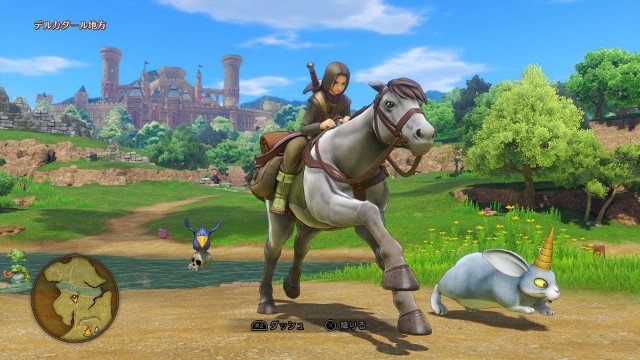
For all intents and purposes, the new world Dragon Quest XI has been able to create thanks to the transition to a new engine should be an easy sell. Series mainstays and traditional JRPG mechanics like overworld traversal, XP leveling, and random monster encounters remain intact, but the world is much more open. Presented as interconnected locations all with their own unique quests to seek out and NPCs to interact with, Dragon Quest XI continues Monster Hunter World’s trend of removing literal boundaries that would otherwise break up the action.
Despite the overhaul in graphical capability and slight alteration of how the world operates, a lot of what Dragon Quest XI: Echoes of an Elusive Age has going for it is that it isn’t ashamed of its JRPG roots. For all its franchise success and celebrated reputation, Final Fantasy is very much a mixed bag in terms of quality and execution by comparison. Tweaking turn-based battle mechanics with each new game before fully making the transition to open world with Final Fantasy XV, the franchise is intent on adapting to Western tastes rather than letting them embrace it for the unique flavor only JRPGS can offer.
Dragon Quest might be equally renowned for its ability to reinvent itself, complete with a new world, new story, and new characters every time, but it still never loses sight of its identity as a traditional JRPG. Spin-offs like Dragon Quest Builders and Dragon Quest Heroes aside, with mainline entries players are never at risk of stepping into a game unsure of itself. Dragon Quest is unabashedly Japanese, and lately, that’s just what Western audiences have been looking for.
